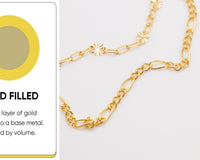In the sparkling world of jewelry eCommerce, understanding the intricacies of sales tax is as crucial as the gems you sell. Navigating through the maze of tax laws can be challenging, but it's essential for the smooth operation of your online store. This blog post is your guide to unraveling the complexities of sales tax for jewelry eCommerce businesses. Fear not, fellow gem merchants! This blog post will be your compass, guiding you through the labyrinth of sales tax for your online jewelry store.
First things first: What are Sales Tax?
Sales tax is essentially a levy imposed on the sale of certain goods and services. It's like a tiny tribute you pay to the government for the privilege of indulging in that stunning pair of earrings or that dazzling pendant. Now, here's where things get interesting for e-commerce stores:
-
Nexus: This fancy term refers to your connection with a particular state. It can be physical (having a warehouse there) or economic (exceeding a certain sales threshold). If you have nexus in a state, you're generally obligated to collect and remit sales tax for that state.
The basic rule for collecting sales tax from online sales is:
- If your business has a physical presence, or “nexus”, in a state, you are typically required to collect applicable sales taxes from online customers in that state. In other words, if your nexus (i.e. storefront, distribution center, etc) is in California and you ship an order to a customer in California, you will need to charge sales tax.
- If you do not have a physical presence, you generally do not have to collect sales tax for online sales. However, in June of 2018, the U.S. Supreme Court issued a ruling that will likely change this exemption to collecting sales tax. States are expected to begin collecting sales taxes regardless of having a physical presence in the state.
A physical presence means that you have some business facility in that state. It could be any type of business operation, such as:
- A storefront
- An office
- A warehouse
So, how does this all translate to your jewelry store? Well, it depends on a few factors:
- Your Location: As we mentioned, your nexus plays a pivotal role. If you're solely online with no physical presence in any state, you might not have nexus anywhere (yay!). However, exceeding certain sales thresholds can create economic nexus, so keep an eye on those numbers.
- Your Customer's Location: Destination-based states will require you to collect and remit sales tax based on the customer's address. This can get tricky with multiple jurisdictions within a state.
-
The Type of Jewelry: Believe it or not, some states exempt certain types of jewelry from sales tax. For instance, some may exempt fine jewelry like diamonds and pearls, while taxing costume jewelry. This is where consulting a tax professional becomes your best friend.
- Determining Tax Rates: Tax rates can vary widely by state, county, and city. Jewelry stores must be diligent in determining the correct rate to charge, considering both the location of the business and the customer. Some states also have specific tax rates for luxury items, including certain types of jewelry.
- Exemptions and Resale Certificates: Certain sales might be exempt from sales tax, such as sales to resellers or non-profit organizations. In such cases, obtaining a resale certificate from the buyer is necessary to justify not collecting sales tax.
Tax Tools:
Now, don't go weeping into your pearls just yet! Several nifty tools can help you navigate the sales tax maze:
- Sales Tax Automation Software: These platforms automate sales tax calculations and filings, saving you precious time and potential tax headaches. Many eCommerce platforms offer automated solutions for sales tax collection. These systems can calculate the tax rate based on the buyer's location and add it to the purchase at checkout. However, it's still important to understand the underlying principles to ensure compliance. Ecommerce websites like Amazon, Etsy, Shopify, have resources that will charge these taxes and submit them to the state for you.
-
Consult a Tax Pro: When in doubt, seek the guidance of a tax professional. They'll be your tax compass, ensuring you stay compliant and avoid any unwanted tax drama.
Sales tax compliance is crucial for your e-commerce jewelry store's health. By understanding the rules and utilizing the right tools, you can ensure your business gleams with both tax savvy and ethical practices. So, go forth and let your online jewelry empire shine, while keeping those tax goblins at bay!
Don't forget to keep yourself updated on any changes in sales tax laws. The tax landscape can shift like desert sands, so staying informed is key to maintaining a fiscally responsible and dazzling business. And remember, if you ever get stuck, there's always a wealth of resources and helpful professionals out there to guide you. So, chin up, buttercup, and let your online jewelry store sparkle with success!
Remember, knowledge is power, and with the right tools and resources, you can navigate the tax labyrinth with ease and keep your jewelry business shining brightly! Find more jewelry selling tips at HarperCrown, the one stop shop for wholesale Charms, Jewelry, Findings and more.



















